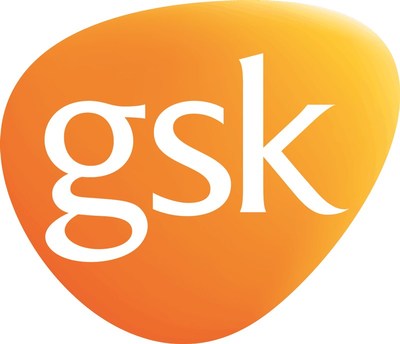Advil to Reduce Plastic in Over 80 Million Bottles by 20% with New Sustainable Plastic Technology
GSK Consumer Healthcare has announced its commitment to reduce plastic in over 80 million Advil bottles by 20%, eliminating nearly 500,000 pounds of plastic waste. By 2022, nearly all Advil bottles will adopt this new sustainable barrier resin technology. This initiative aligns with GSK's broader sustainability goal of making all consumer product packaging recyclable or reusable by 2025. GSK also aims for net-zero climate impact by 2030, having joined the Ellen MacArthur Network to promote a circular economy for plastics.
- Reduction of plastic in Advil bottles by 20%, impacting over 80 million units.
- Elimination of nearly 500,000 pounds of plastic waste.
- Introduction of first-of-its-kind sustainable plastic technology for OTC medicines.
- Alignment with broader sustainability goals to make all packaging recyclable or reusable by 2025.
- None.
Insights
Analyzing...
WARREN, N.J., April 19, 2021 /PRNewswire/ -- GSK Consumer Healthcare (LSE/NYSE: GSK), the maker of Advil, today announced its commitment to reducing the plastic in over 80 million Advil bottles1 by
The initiative is a first-of-its-kind sustainable plastic technology for over-the-counter (OTC) medicines. This new barrier resin technology reduces the amount of resin required to mold and craft the bottles, while maintaining the same barrier protection properties. It allows for a
The new sustainability goal set by Advil is part of GSK's ambition for all consumer product packaging to be recyclable or reusable, including eliminating all problematic and unnecessary plastics when permitted, while ensuring the quality, safety and efficacy of our products, by 2025.
"As a world leader in pain relief, we at GSK are proud to transition Advil to a more environmentally friendly packaging, further supporting GSK's commitment to sustainability," said Sarah McDonald, VP of Sustainability, GSK Consumer Healthcare. "With the new technology available to us, we saw this as an opportunity to invest in the future of our brands and sustainability goals. Advil's switch to
The focus on plastics and packaging is informed by the leading requirements set by the Ellen Macarthur Foundation. GSK joined the Ellen MacArthur Network in 2020 and is committed to playing its part in mobilizing a shift towards a circular economy for plastics.
As part of their 2025 sustainability commitment, GSK also joined the Action for Sustainable Derivatives (ASD), which aims to increase the transparency and traceability of palm oil derivatives supply chains. In collaboration with ASD, GSK introduced the Sustainable Palm Index (SPI), an evaluation scorecard for suppliers of palm oil and palm kernel oil derivatives, intended to support procurement decisions.
Further, last year GSK announced ambitious new environmental sustainability goals in both climate and nature, aiming to have a net zero impact on climate and a net positive impact on nature by 2030.
GSK has already begun transitioning Advil's bottles to
GSK's commitment to pain relief
We are the world leader in pain relief. With a portfolio of (systemic and topical) products to relieve pain, our range brings comfort and ease to millions. World-leading brands including Advil, Panadol and Voltaren; and beloved local brands like Excedrin in the US and Fenbid in China help people manage their symptoms so they can enjoy life to the fullest.
About Advil
Patients and doctors have trusted Advil to deliver powerful relief from several kinds of pain, including headache, muscle aches, minor arthritis and other joint pain, and backache for more than 35 years. No other OTC pain reliever has been proven stronger on pain than Advil. Advil's line of products includes Advil Liqui-Gels, Advil Migraine, Advil PM, Children's Advil Allergy & Congestion Relief, and the brand's latest innovation, Advil Dual Action.
Important Safety Information
For more than 30 years, extensive consumer use and numerous clinical studies have shown that, ibuprofen, the active ingredient in Advil, when used as directed, is a safe and effective OTC pain reliever and fever reducer.
Please refer to the full product labeling for additional safety information related to Advil.
About GSK Consumer Healthcare
GSK Consumer Healthcare combines science and consumer insights to create innovative world-class health care brands that consumers trust and experts recommend for oral health, pain relief, respiratory and wellness. For further information please visit www.gsk.com.
Media Inquiries: | |||
GSK Consumer Healthcare | Caitlin Kormann | +1 617 448 0557 | Warren |
Edelman Jessica Moschella | +1 201 953 1547 | (New York City) |
1 Annual volume
2 Does not include Advil "easy open" bottles
![]() View original content to download multimedia:http://www.prnewswire.com/news-releases/advil-to-reduce-plastic-in-over-80-million-bottles-by-20-with-new-sustainable-plastic-technology-301271061.html
View original content to download multimedia:http://www.prnewswire.com/news-releases/advil-to-reduce-plastic-in-over-80-million-bottles-by-20-with-new-sustainable-plastic-technology-301271061.html
SOURCE GSK Consumer Healthcare








